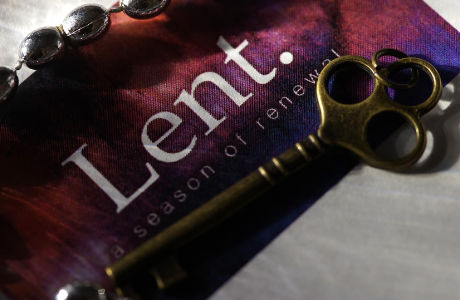Over the past few years, I’ve become increasingly uncomfortable with the notion that God killed Jesus, as I had been led to believe. The teaching went something like this:
God loves you but is also angry with you because of your sin. Because God is just, he can’t simply forgive you. God’s justice must be satisfied. And so, because he loves you, he decided not to punish you but rather punish his Son. If you believe this, you no longer need to bear God’s wrath. The penalty of your sin was paid by Jesus. If you reject this, you still need to take the punishment of God’s anger with you as a sinner. God will put you in hell and torture you forever and ever. But, don’t forget, God loves you.
I believed it. I preached it. But then I sensed the gentle nudging of the Holy Spirit to dig deeper and find out if this really is an accurate representation of the gospel, the good news. I don’t believe it is. I mean, what loving parent would punish their own child for the wrongdoing of another?
Is Justice Greater than God?
The doctrine I have described is called (theologically) the penal substitution atonement theory. It makes God somehow less than God. Notice how God loves you and wants to save you, but he can’t until His justice is satisfied. That makes justice greater than God. Justice is in charge here, and God becomes its servant.
Consider the gospel presented by Jesus in the Parable of the Loving Father (Luke 15:11-32). What if the father looked out for his Prodigal Son, saw him, ran to him, and then stopped and thought, “I can’t just accept him back. Someone else has to be punished first.” The father takes the older son, whips him, kills him, and then welcomes the prodigal home having “satisfied” his justice.” Somehow, I don’t think that parable would be so celebrated anymore!
But that’s not Jesus’ story. Instead, a loving father welcomes his sinful son with no questions asked. He’s not particularly interested in the son’s repentance speech. He is simply overjoyed the lost lad has returned. The father welcomes him with open arms, grants him access to the family finances (the ring), and throws a party. Of course, the older brother is miffed, just like some Christians will be with this blog. How could God be THAT good and grace be SO amazing?
Paul tells us that “God was reconciling the world to himself in Christ, not counting people’s sins against them.” (2 Cor. 5:19). With that background in mind, let me offer you what I believe to be more valid reasons why Jesus died on the cross. Please note that this is not an exhaustive list.
Extravagant Love
Jesus’ death on the cross was an undisputed act of extravagant, gracious love. Today we have lost much of the horror of first-century crucifixion. People wear crosses around their necks and display pictures of the cross on walls in their homes. But in Jesus’ time, it was an awful symbol of Roman tyranny and cruelty. In the light of this, the first-century church transformed the meaning of this symbol by speaking of the cross as proof of God’s love, “But God demonstrates his own love for us in this: While we were still sinners, Christ died for us” (Romans 5:8). In Greek Mythology, Cupid, the god of desire and love, is seen as shooting an arrow to pierce a human heart. We still use this symbol today to denote when a person falls in love. Jesus was pierced not with arrows but with nails to show how much God has fallen in love with you!
Empathy
“If there’s a loving God, why is there so much pain and suffering in the world”? The answer to the question is the Cross.
Jesus, the God-Man, experienced human suffering at its most extreme. During a crucifixion, the victim felt some of the most intense pain that a person could feel. He also experienced intense shame. The world of Jesus’ Day valued personal honour, as eastern cultures still do today. Men were crucified naked (women weren’t crucified) in public places, so victims were subjected to as much shame as possible. Rome reserved crucifixion for the worst criminals, especially those who stirred up a rebellion against the state. Pilate’s sign above Jesus on the cross – “The King of the Jews” – revealed that he was considered a rebel and a threat to Rome. There was to be no king but Caesar.
In experiencing suffering and shame, Jesus empathised with the entire human race. God could have remained in the safety and comfort of heaven, but because of his great love for us, he was born into the human family to experience life as we do. We have a high priest who can empathise with our weaknesses (Hebrews 4:15). He understands; he sympathises.
Freedom
Jesus’ final meal with his disciples before the crucifixion was celebrated at The Passover. They thanked God for Israel’s deliverance from slavery in Egypt and prayed for him to liberate them again – this time from Roman oppression. It was at this meal that Jesus said, “This is my blood of the covenant, which is poured out for many” (Mark 14:24), a statement that would have seemed quite shocking to Jesus’ hearers. The Passover was always about God and what he had done, but here Jesus makes it all about himself – “My body … My Blood.” In this statement, Jesus declared himself to be the God-Man making a New Covenant with people. And just like the Old Covenant between God and Israel had been ratified with blood (Exodus 24:7-8), the New Covenant would be confirmed with blood; the blood of a sinless man to set them free.
Death, Sin, & Satan
Jesus’ death gained freedom from death, sin, and Satan. Consider Hebrews 2:14, “by his death he might break the power of him who holds the power of death—that is, the devil—and free those who all their lives were held in slavery by their fear of death.”
Several of the church fathers described the cross as a fish hook. Rufinus wrote: “[The purpose of the incarnation] was that the divine virtue of the Son of God might be like a kind of hook hidden beneath the form of human flesh…to lure on the prince of this world to a contest; that the Son might offer him his human flesh as bait and that the divinity which lay underneath might catch him and hold him fast with its hook.”
Rufinus’ contemporary Gregory of Nyssa said that the devil, “like a greedy fish…swallow[ed] the Godhead like a fish-hook along with the flesh which was the bait.” Jesus’ body is the bait, but inside him is the divine nature which is the hook. Once the devil swallows God, he is in real trouble. He cannot digest or defeat God’s eternal life. What a powerful picture.
As we approach Good Friday and Easter, I encourage you to think about these life-changing truths. Jesus visited death and returned. He’s become the ultimate tour guide through this life and into the next. My prayer is that you open yourself to God’s love and grace and receive all that Jesus has done for you.











